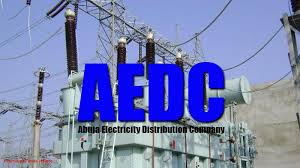
Abuja Disco Gets $1.06m To Support Building Of 1,370 Solar-powered Mini Grids
The Abuja electricity distribution company (Disco) has secured from the United States Trade Department Administration (USTDA), up to $1.06 million with which it will use to begin the process of expanding electricity services to underserved communities within its networks.
The fund according to the Managing Director of Abuja Disco, Mr. Ernest Mupwaya, would be deployed first to undertake studies on optimal locations within its network for complimentary mini grid deployments.
Speaking at the recent signing ceremony, Mupwaya explained that the decision of the Disco on this was informed by its plan to ensure stable electricity supply to consumers within its network.
According to him, parts of the strategic plan to provide power every day in Abuja were tied to the 1370 solar-powered mini grid it hoped would be deployed as soon as possible.
He stated that the opportunity represented another visible effort for the Disco to explore available solutions for the provision of stable electricity to customers within its franchise area of Abuja, Niger, Nasarawa and Kogi States.
“Electricity no doubt is one of the key parameters used in measuring the extent of development of any nation. There’s evidence backed by research which demonstrate correlation between electricity consumption and GDP growth.
“According to the 2017 report by International Energy Agency, while many of the developed countries have already attained 100 per cent electrification access, scores of developing nations particularly those in sub-Saharan Africa have remained behind and are recording low access rates that are characterized by poor reliability. The report estimates 1.1 billion of people yet to be connected while another 1 billion is being supplied with poor quality of electricity,” said Mupwaya.
He noted that to address the energy poverty challenge, different actors have consensually agreed that what was required was a pragmatic approach that accounted for various options in addressing the electrification gaps.
According to him, the options available to bridge the energy gap were main grid extension to capture new customers, improvement of quality of supply by augmenting grid supply with other alternative sources, and off grid solution for far flung areas.
“In our environment for instance, there is a huge disparity in the level of electrification between urban and rural areas where access to electricity is higher in urban areas compared to rural areas.
“As a company, we have designed a strategy which seeks to holistically examine how the obvious huge gaps in the level of electrification can be narrowed. In addition, we are developing and implementing initiatives to improve the quality of supply in urban areas. We are also considering how we can close up the gaps in rural areas where the challenges, some of which include the affordability of electricity, long distances which require extensive network remain unique to these areas,” he said.
He further noted: “We are grateful that the United States Trade Department and Administration has committed funding to help the Abuja electricity distribution company provide electricity to underserved communities through the implementation of up to 1,370 solar-powered mini-grids with energy storage systems. Colorado’s Rocky Mountain Institute will carry out the study.
“With this support from the USTDA in partnership with Rocky Mountain Institute, we are going to be able to conduct a feasibility study that will identify specific opportunities for different areas so that we can ultimately have bankable solutions, which in turn can facilitate partnerships with other investors. This will enable us to achieve sustainable overall improvement consistent with our desire to provide quality electricity to our franchise area.”
Mupwaya, stated that the fund will also support the Disco to develop an integrated distribution framework that combines the central grid with decentralised off grid power solutions which will, where appropriate, include mini grids, off grid mini grids, grid extension projects and solar home systems.
